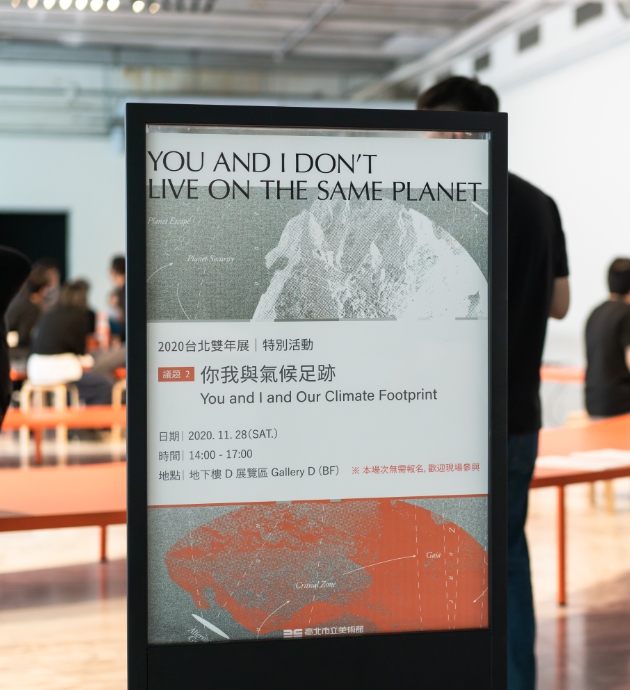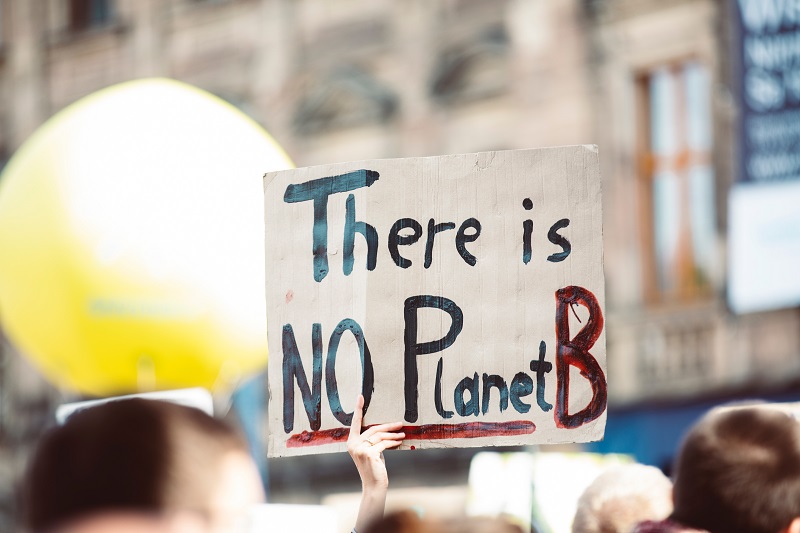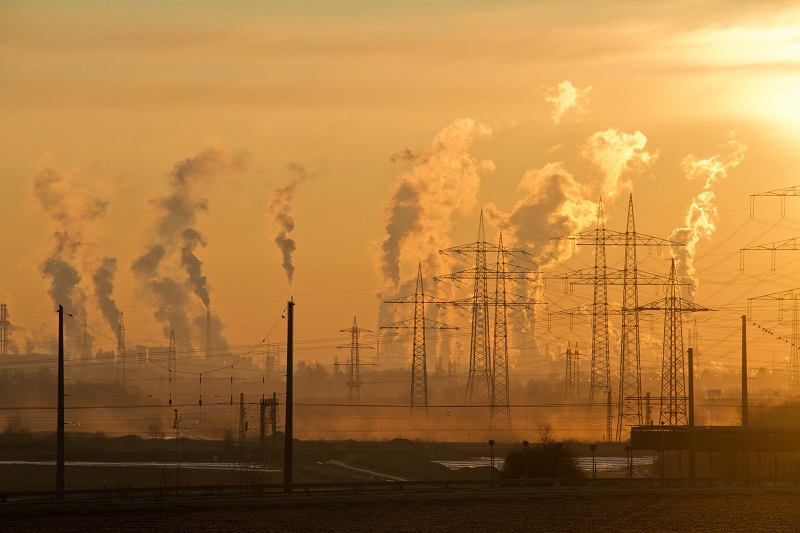
Although the Earth’s natural resources can be regenerated, humans are consuming resources far too quickly. Research by the international Global Footprint Network (GFN) reveals that the rate of human consumption of the earth’s resources is about 1.6 times the rate of resource regeneration. In other words, every year humankind is spending more ecological resources than the Earth can provide. GFN has thus introduced the idea of the Earth Overshoot Day (EOD), marking the day when humans exhaust their global resource budget for each year. In this special event, visitors to the Taipei Biennial are invited to answer a questionnaire about their housing, food consumption and transport, the results of which will calculate their ecological footprint, or in other words, how many Earths they consume. The discussion that follows aims to find specific solutions to reduce this ecological footprint and its impact on global climate. Since the footprint is partly the result of individual choices and partly the result of collective national ones (such as infrastructure and public policy), the discussion entails a negotiation between oneself and the whole society, and it might initiate a reset of our lifestyles.
Paul Jobin
PhD in Socio-Economics from the School for Advanced Studies in the Social Sciences (École des hautes études en sciences sociales, EHESS). Currently, Associate Research Fellow, Institute of Sociology, Academia Sinica. He has a long-term concentration on public hazards and environmental issues, including Minamata disease in Japan, the Fukushima nuclear disaster, the RCA Incident in Taiwan, and the Formosa Plastics No. 6 Naphtha Cracker. Recently, his research has focused on social and political issues of the Anthropocene.
Shih-Hao Jheng
A graduate of the Department of Chemical Engineering, National Cheng Kung University. Currently a graduate student in the Department of Sociology, National Chengchi University. In response to the increasingly complex and severe state of contemporary society, Jheng has turned his attention to the complex, interconnected relationship between technology and society, with a special concern for the issue of air pollution.


